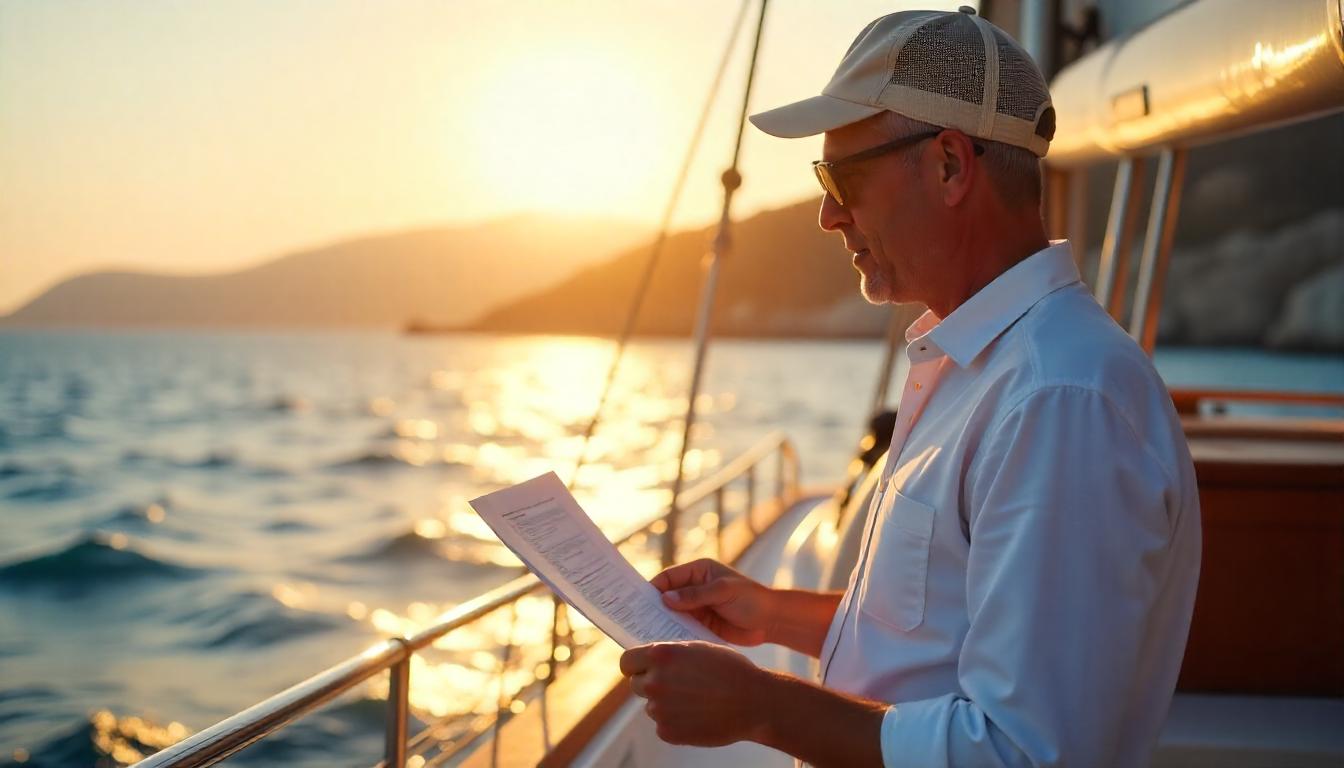Navigating yacht charter regulations in 2025 ensures a safe and enjoyable sailing experience across global waters. As of Tuesday, June 03, 2025, at 04:19 PM +05, new laws and safety standards shape the industry. Whether you’re chartering a bareboat or crewed yacht, understanding licensing, safety requirements, and regional rules is essential. This guide covers key regulations, practical tips, and updates to help you comply with maritime charter regulations effortlessly.
Licensing and Qualifications
Licensing forms the backbone of yacht charter compliance guide. Bareboat charters often require an International Certificate of Competence (ICC) or equivalent, like the RYA Day Skipper, especially in Europe. For instance, Greece mandates an ICC for all skippers, with a co-skipper over 18 named in paperwork. In contrast, the British Virgin Islands may accept a sailing resume if no formal license is held.
Moreover, crewed charters typically rely on the captain’s credentials, such as STCW certification. Transitioning to this, verifying qualifications avoids port delays. Therefore, check specific destination rules before booking.
安全基準
Safety standards uphold charter yacht safety standards. All yachts must carry life jackets, navigation lights, and fire extinguishers. For example, U.S.-flagged yachts over 300 GT require inspections. Additionally, emergency protocols, like man-overboard drills, ensure readiness.
Furthermore, stabilizers and AIS systems enhance safety on longer trips. Transitioning to this, compliance protects everyone onboard. Consequently, adhering to these standards is non-negotiable.
Environmental Regulations
Environmental laws impact sailing regulation basics. The Maritime Labour Convention (MLC 2006) enforces waste management and crew welfare. In the Maldives, yachts must use eco-friendly products to protect coral reefs. For instance, anchoring in sensitive areas is prohibited.
Moreover, hybrid propulsion and solar panels reduce emissions. Transitioning to this, sustainability is a growing focus. Therefore, eco-compliance boosts your charter’s reputation.
Regional Variations
Regional rules vary for yacht rental legal requirements. Greece requires a VHF license for skippers in Croatia and Malta. Spain’s 2023 Royal Decree now allows non-EU flagged yachts to charter with an affidavit, simplifying past restrictions. Meanwhile, the U.S. distinguishes between crewed and bareboat charters.
Additionally, flag state regulations influence compliance. Transitioning to this, research your destination’s laws. Consequently, regional knowledge prevents legal issues.

Practical Tips for Compliance
Preparation smooths navigating yacht charter regulations. Submit a sailing resume for bareboat charters where licenses aren’t mandatory. For example, list nautical miles and roles held. Also, file a float plan with shore contacts.
Moreover, consult charter companies for up-to-date rules. Transitioning to this, communication avoids surprises. Therefore, proactive planning ensures a hassle-free trip.
結論
Navigating yacht charter regulations in 2025 requires understanding licensing, safety, and environmental rules. Regional variations demand tailored preparation, from Greece’s ICC requirement to Spain’s new affidavit process. Follow these tips to comply and enjoy a safe, memorable voyage on the water.

 Navigating Yacht Charter Regulations: What You Need to Know">
Navigating Yacht Charter Regulations: What You Need to Know">
